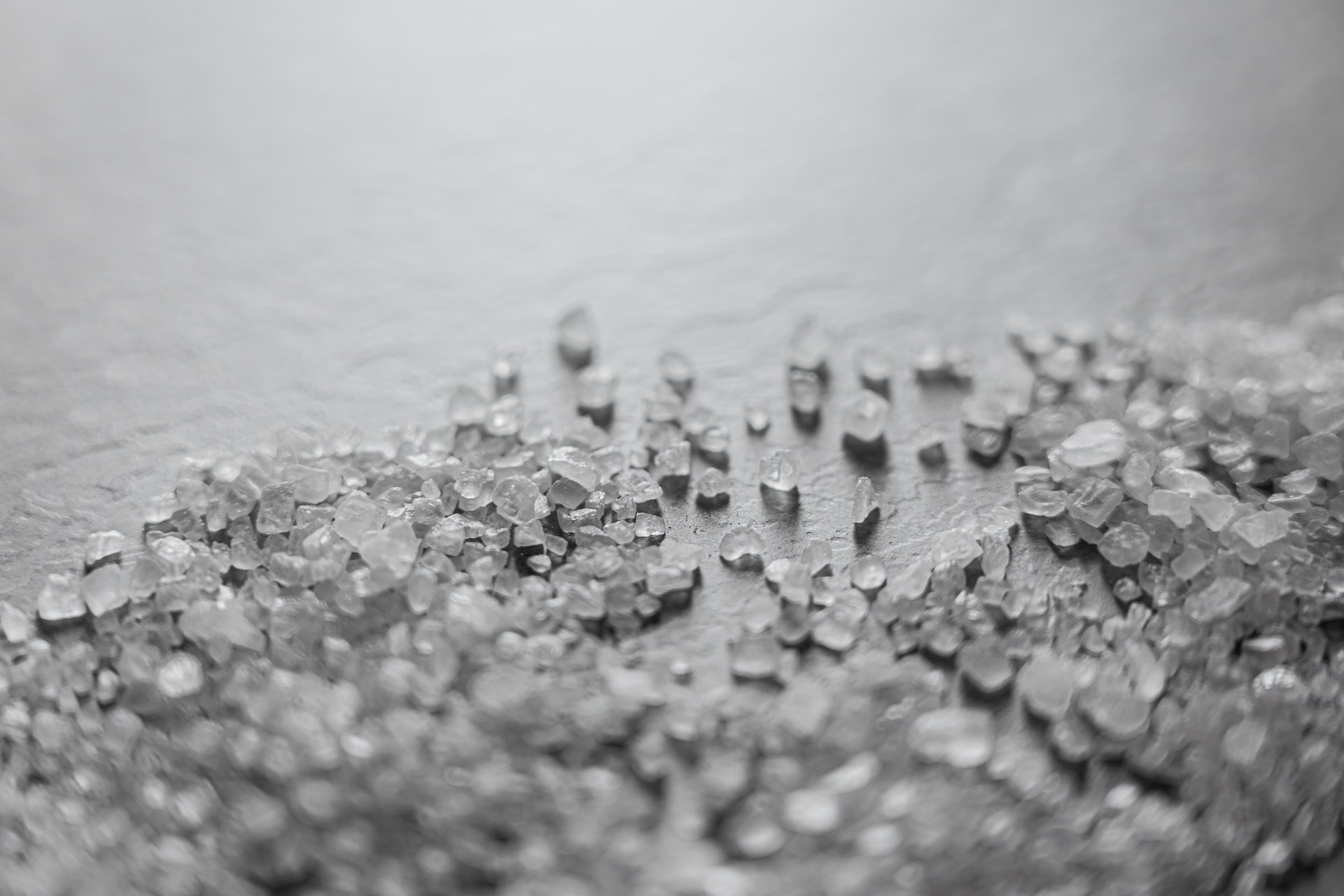Winter is Coming

Soon community associations will have to deal with snow and ice, and the problems that come with it. In this article I want to discuss salt and other deicers. Many unit owners are certain that one type of salt will ruin their sidewalks. Other units owners believe that any kind of ice melt will harm concrete. Associations get complaints about ice in the winter, and then about spalling sidewalks in the spring. Which deicers are best, and which are asking for problems? Although most of my posts contain mostly legal advice, for this article I got to use my background as a chemical engineer too.
There are four main kinds of ice melt that are used. They are sodium chloride (rock salt), calcium chloride, magnesium chloride and calcium magnesium acetate (CMA). The truth is that all ice melt works in basically the same way. Magnesium chloride, calcium chloride and CMA all absorb water. In doing so, they produce a chemical reaction with the water that produces heat. The heat produced melts the ice. The melting ice dissolves the deicer, and then carries it onto the rest of the surface. Sodium chloride is a little different in that it actually lowers the temperature in which water freezes. So instead of freezing at 32 degrees, water with salt dissolved in it doesn’t freeze until it is 25 degrees. Try it at home – science is fun!
The differences among these materials starts with how effective they are at certain temperatures. Rock salt works down to about 24 degrees. CMA is effective to 20 degrees. Magnesium chloride is effective to around 5 degrees. And calcium chloride will work to about twenty degrees below zero. Magnesium chloride is less harmful to plants, and calcium chloride is the most harmful out of these choices. Rock salt is the least expensive, while CMA is much more expensive.
Any of these deicers can contribute to concrete damage, spalling and scaling in the right conditions. Most sources say that concrete damage is not caused by a chemical reaction between the deicer and the concrete. Damage is caused by the freeze and thaw cycle damaging the concrete from the inside. Concrete is like a very hard sponge. It has tiny voids or air pockets throughout. When ice melts, the water is absorbed by the concrete into these little holes. Under the right circumstances, this water inside the concrete can freeze. That puts stress on the concrete from the inside. If the sidewalk goes through enough of these freeze/thaw cycles in a short amount of time, then scaling can occur. All of the deicers listed here can go through the same freeze and thaw cycle. Because of that, there is no ice melt that is perfectly “safe” and there is none that is a consistent problem.
One of the factors that contribute to concrete damage is the concrete itself. If concrete is cured incorrectly, the voids in the concrete get larger. The larger voids collect more water. So when the water freezes, it exerts more force on the concrete, and it causes spalling more quickly. Differences in the preparation and cure of the concrete are the reason that one section of sidewalk can be crumbling while the one beside it is completely fine.
Now I’ll stop sounding like a chemical engineer and jump back into the legal issues. My opinion is that the association usually should not be held liable when a sidewalk is damaged by a deicer. There are no deicers that are completely fool proof. There are none that will prevent damage to concrete if the circumstances are correct. The association’s job is to act reasonably. All things being equal, the use of any of these seem to be a reasonable choice. If the sidewalk ends up being damaged, there are more factors in play than just the choice of deicer.
[Managers and Board members should go back and read “When to Call the Snow Plows” for a refresher on the association’s responsibility to treat snow and ice.]
According to the long-range forecast from The Old Farmer’s Almanac we shouldn’t have to worry about deicers until sometime in January so you have plenty of time to prepare. For now, enjoy the holidays and have fun preparing for the upcoming winter.
